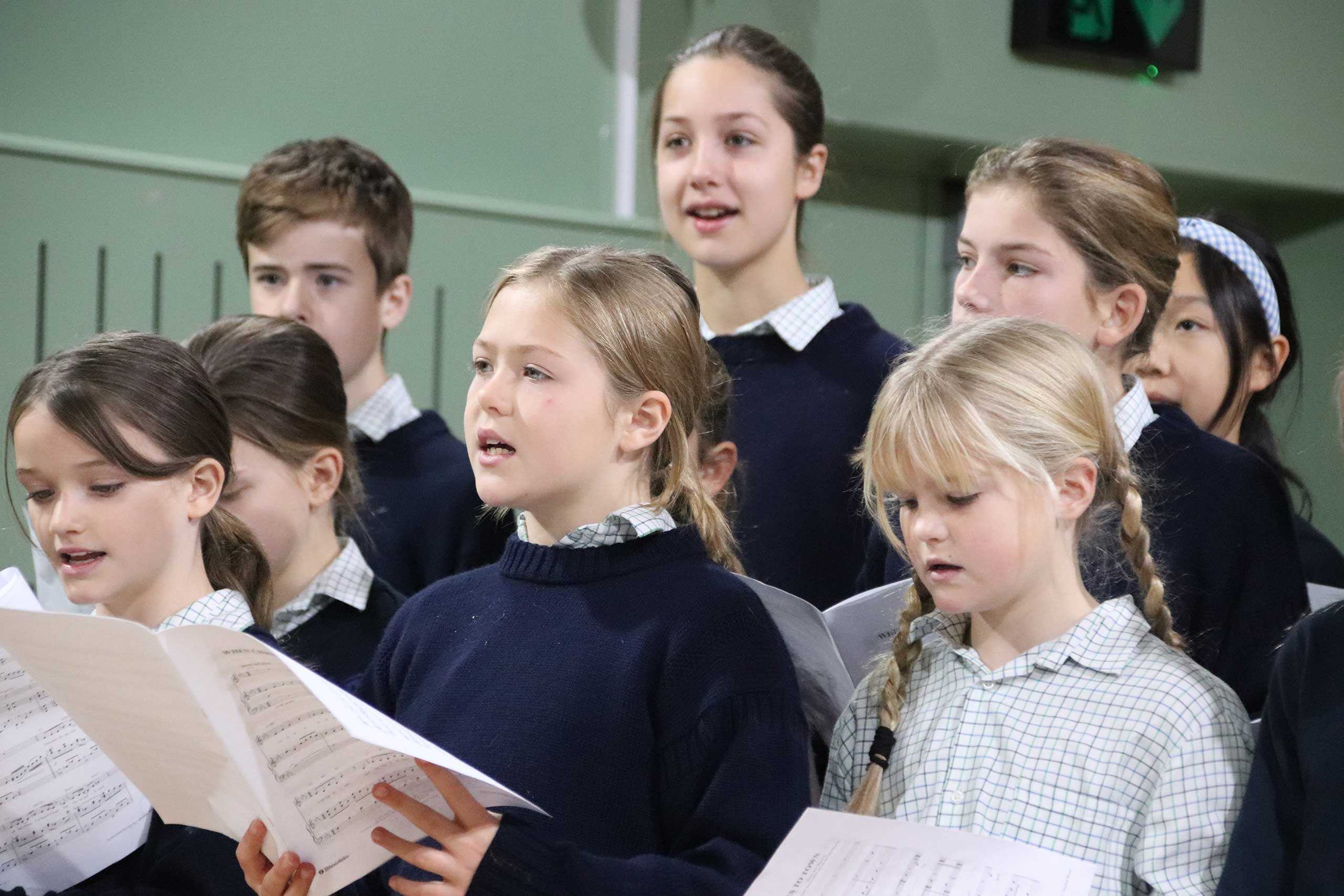
Music education: A school essential
30th May 2025
By Jess Harman, Assistant Director of Music
Inspired by Ed Sheeran’s recent plea to Prime Minister Keir Starmer for increased funding for music education in schools, and as a Music Teacher with over 20 years’ experience, I felt compelled to share my perspective. Having taught from Early Years to GCSE, I can say wholeheartedly that weekly music lessons for every child are not just beneficial, but they are essential. Music education plays a vital role in a child’s academic development, social growth and overall well-being, each in equal measure.
It’s important not to generalise when discussing primary music education. There are many schools where outstanding teaching is delivered by dedicated specialist music teachers. However, Ed Sheeran raises a valid and timely concern: music is increasingly being sidelined in the curriculum. If this trend continues, the long-term impact on children’s creativity, confidence and cultural literacy could be significant. We may only begin to understand the true cost in the years to come.
There are numerous benefits to including music lessons in the school curriculum. Research shows that music supports cognitive development by enhancing working memory and improving the ability to concentrate for extended periods. Learning music also boosts language and literacy skills by raising phonological awareness, expanding vocabulary and strengthening reading abilities. In addition, engaging with rhythm and musical patterns helps develop mathematical understanding, particularly in areas such as fractions, sequencing and counting.
As Mary Poppins says, ‘You find the fun and snap! The job’s a game!’ In my music teaching I use many games to achieve different objectives. For example, one game helps children develop auditory memory by listening for a ‘forbidden rhythm,’ while another uses a variety of percussion instruments and helps develop fine motor skills.
At Highfield and Brookham, music is truly inclusive. While some children naturally gravitate towards music and may show exceptional talent, we believe it is essential that every child has access to a rich and varied music education. This is delivered through classroom lessons, individual instrumental tuition and regular opportunities for group singing, whether by year group, key stage, or the whole school, as well as a range of enrichment projects.
In Year 2, all pupils take part in taster sessions with three instruments: violin, recorder, and cello. In Year 4, all students receive taster sessions in brass and woodwind instruments. The aim is to encourage and inspire children to consider learning an instrument and for those who may not yet be interested, to at least offer the joy of holding, exploring and making sound with real instruments. In addition to whole class music, we have regular singing assemblies. Group singing is proven to boost endorphins and well-being and confidence.
Performing in ensembles provides huge benefits from aiming high with a shared goal to gaining friends through teamwork. At Highfield and Brookham we have a wealth of ensembles that cater for a variety of tastes and abilities and based on the pupils we teach. Ensembles include Year 1-3 Choir, Year 4 and 5 Choir, Year 5-8 Rock Choir, Year 6 Boys’ Choir, auditioned Chapel Choir for Year 6-8, Recorder Ensemble, Recorder Group, String Group, String Orchestra, Rock Bands from Year 4 up, Year 2-8 String Orchestra, Wind Band and Brass Band, Flute Choir and Orchestra.
Whether it’s through singing, being part of an ensemble or simply exploring rhythm in class music, music allows children to feel seen and heard, unlocking creativity and emotional resilience. Performing, even in the smallest way, can be transformative, helping children shed their shyness and grow in confidence. And when they make music together, something powerful happens. They learn to listen, to support one another and to thrive as a team.
Every child deserves the chance to make music; it is a powerful outlet for self-expression, confidence and connection with their peers. Whether singing or playing in a band or orchestra, music nurtures emotional, social and academic growth. Studies show that pupils involved in music often perform better academically and improve focus. Music builds teamwork, resilience and creativity, skills that last a lifetime. It is essential to the curriculum, and can be transformative, and I believe it is a lifelong gift that every child should experience.
